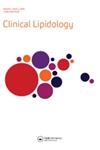Gender differences and statin therapy
Q Medicine
引用次数: 0
Abstract
We read with interest the Pavanello et al. review on gender differences in the efficacy, safety and tolerability of statin therapy.[1] The authors reported differences between genders in cardiovascular (CV) risk factors, CV morbidity and mortality as well as in statin response and adverse events. These discrepancies may be attributed to hormonal, anthropometric and pharmacokinetic factors as discussed by the authors.[1] Pavanello et al. also commented on current CV guidelines in both men and women. Interestingly, apart from traditional CV predictors,[2] several emerging CV risk factors may differ between men and women.[3] Both atherosclerotic and non-atherosclerotic coronary heart disease may present gender differences.[4] Furthermore, gender may influence acute coronary syndrome (ACS) outcomes and thus it has been included in risk scores such as the CHA2DS2-VASc-HS score.[5] The rates and outcomes of coronary revascularisation procedures may also differ between genders.[6] In terms of genetic factors predisposing to CV diseases, gender differences have also been reported for polymorphisms in genes involved in lipid metabolism such as the ATP-binding cassette transporter A1 (ABCA1), cholesteryl ester transfer protein (CETP), lipoprotein lipase genes and apolipoprotein E genes.[7–9] With regard to drug therapy, CV risk factors are treated less aggressively and less frequently in women than in men,[2] thus contributing to the gender differences seen in CV disease morbidity and mortality. According to statin treatment and gender differences, data from the majority of studies [the Scandinavian Simvastatin Survival Study, the Prospective Pravastatin Pooling Project, the Women of Air Force/Texas Coronary Atherosclerosis Prevention Study, the Heart and Estrogen/Progestin Replacement Study, the Women of Intervention Trial Evaluating Rosuvastatin, the Women in the Pravastatin or Atorvastatin Evaluation and Infection Therapy Thrombolysis in Myocardial Infarction 22 (PROVE IT-TIMI 22) trial] [10–15] showed that both women and men had benefited from intensive statin therapy and thus, gender should not be a factor in determining who should be treated with intensive statin therapy.性别差异与他汀类药物治疗
我们饶有兴趣地阅读了Pavanello等人关于他汀类药物疗效、安全性和耐受性的性别差异的综述作者报告了心血管(CV)危险因素、CV发病率和死亡率以及他汀类药物反应和不良事件的性别差异。这些差异可能是由激素、人体测量学和药代动力学因素引起的Pavanello等人也对目前的男性和女性CV指南进行了评论。有趣的是,除了传统的CV预测因素外,一些新出现的CV危险因素在男性和女性之间可能有所不同动脉粥样硬化性和非动脉粥样硬化性冠心病都可能存在性别差异此外,性别可能影响急性冠状动脉综合征(ACS)的结局,因此它已被纳入危险评分,如CHA2DS2-VASc-HS评分冠状动脉血管重建术的比率和结果也可能因性别而异在易患心血管疾病的遗传因素方面,参与脂质代谢的基因如atp结合盒转运蛋白A1 (ABCA1)、胆固醇酯转移蛋白(CETP)、脂蛋白脂肪酶基因和载脂蛋白E基因的多态性也有性别差异的报道。[7-9]在药物治疗方面,与男性相比,女性对CV危险因素的治疗力度和频率较低,因此导致了CV疾病发病率和死亡率的性别差异。根据他汀类药物治疗和性别差异,来自大多数研究的数据[斯堪的纳维亚辛伐他汀生存研究,前瞻性普伐他汀合并项目,空军女性/德克萨斯州冠状动脉粥样硬化预防研究,心脏和雌激素/黄体激素替代研究,评估瑞舒伐他汀的女性干预试验,在普伐他汀或阿托伐他汀评价和感染治疗溶栓心肌梗死22 (PROVE IT-TIMI 22)试验中的女性[10-15]表明,女性和男性都从强化他汀治疗中获益,因此,性别不应成为决定谁应该接受强化他汀治疗的因素。
本文章由计算机程序翻译,如有差异,请以英文原文为准。
求助全文
约1分钟内获得全文
求助全文
来源期刊

Clinical Lipidology
生物-生化与分子生物学
CiteScore
0.44
自引率
0.00%
发文量
0
审稿时长
6-12 weeks
期刊介绍:
The Journal of Clinical Lipidology is published to support the diverse array of medical professionals who work to reduce the incidence of morbidity and mortality from dyslipidemia and associated disorders of lipid metabolism. The Journal''s readership encompasses a broad cross-section of the medical community, including cardiologists, endocrinologists, and primary care physicians, as well as those involved in the treatment of such disorders as diabetes, hypertension, and obesity. The Journal also addresses allied health professionals who treat the patient base described above, such as pharmacists, nurse practitioners and dietitians. Because the scope of clinical lipidology is broad, the topics addressed by the Journal are equally diverse. Typical articles explore lipidology as it is practiced in the treatment setting, recent developments in pharmacological research, reports of treatment and trials, case studies, the impact of lifestyle modification, and similar academic material of interest to the practitioner. While preference is given to material of immediate practical concern, the science that underpins lipidology is forwarded by expert contributors so that evidence-based approaches to reducing cardiovascular and coronary heart disease can be made immediately available to our readers. Sections of the Journal will address pioneering studies and the clinicians who conduct them, case studies, ethical standards and conduct, professional guidance such as ATP and NCEP, editorial commentary, letters from readers, National Lipid Association (NLA) news and upcoming event information, as well as abstracts from the NLA annual scientific sessions and the scientific forums held by its chapters, when appropriate.
 求助内容:
求助内容: 应助结果提醒方式:
应助结果提醒方式:


